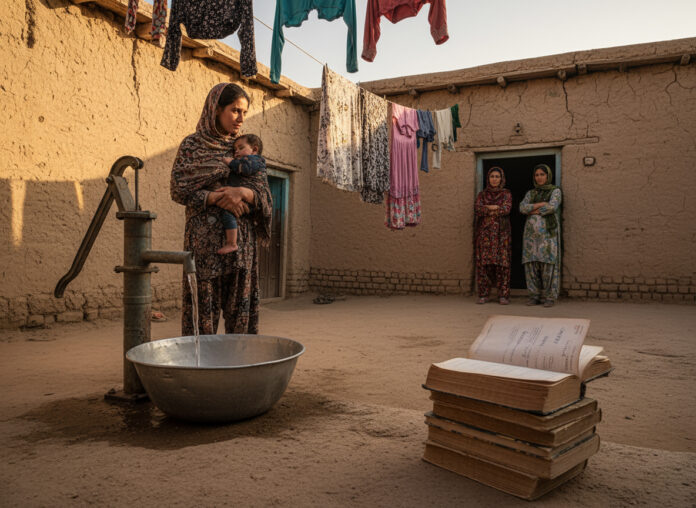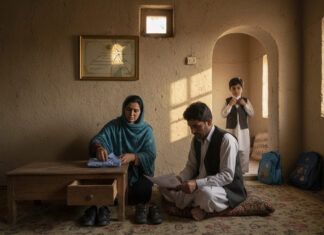Province: Laghman
My name is Gulmakay. I was studying journalism at a private university in Kabul when the Taliban returned to power. I had to leave my studies and return to my hometown in Laghman. In the early days of their rule, the Taliban went door to door collecting information about unmarried boys and girls. My father told them I was engaged, but they did not believe him, because some Taliban members were from our own area and knew I was not engaged.
They asked my father several times to give me in marriage. To protect me, my parents went to my uncle’s house and, without asking for my opinion, requested that he marry me to his son. They feared that if this did not happen, my father would be forced to give me to the Taliban. My uncle agreed. In the end, I married my cousin without any ceremony, in the presence of a mullah, two witnesses, and a few village elders. Afterward, I moved into my uncle’s home.
At first, this situation deeply affected my mental health. It was clearly a forced marriage. I struggled to get along with my husband and his family. I had grown up in Kabul, and my mindset was more modern, while theirs was traditional and their behavior toward me was often harsh. However, after my daughter was born, both my spirit and my husband’s behavior began to improve. Now, I am happy with my husband, but my uncle’s family continues to treat me poorly.
In their eyes, even the smallest mistake is my fault. If I try to speak up, they silence me, saying, “You have no right to speak, because we never came to ask for your hand. You came to this house by your own choice, and now all responsibilities are on your shoulders.”
This has weighed heavily on my mind and soul for over two years. Sometimes I think that if the Taliban had never come to Afghanistan, my life would be different. I would have completed university, married according to my own wishes, and seen my dreams come true.










